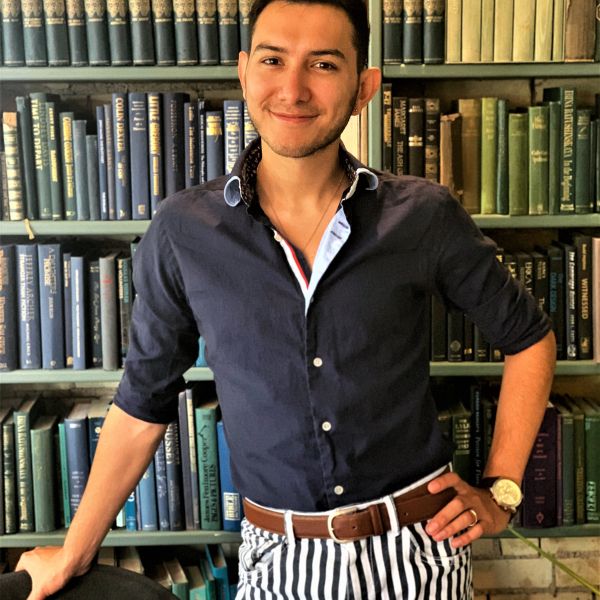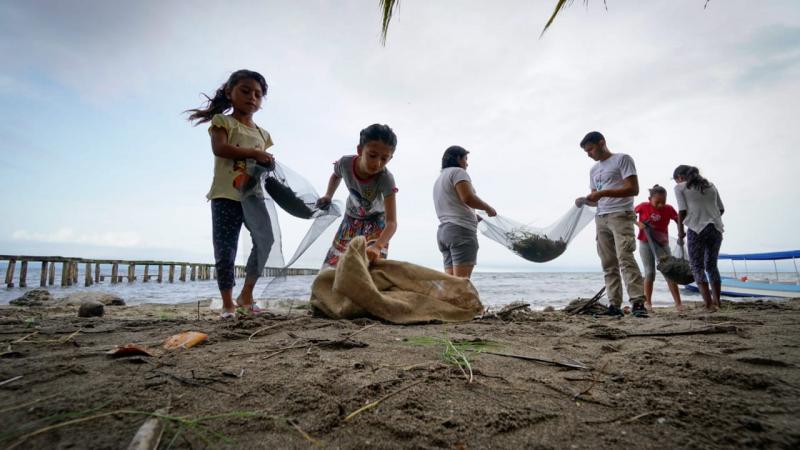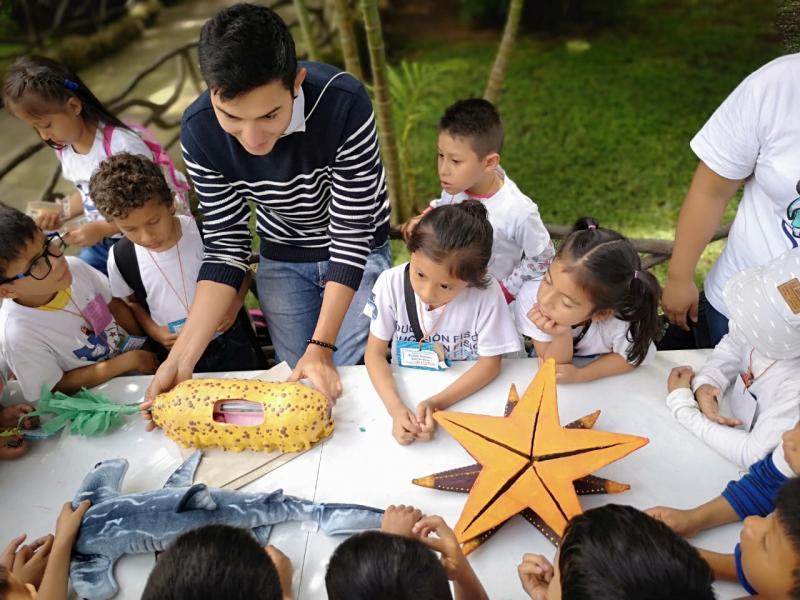Image

-
Alerick Pacay
Founder and Former CEO, Semillas del Océano.
- 30 Under 30
- 2019
- Changemaker Grantee
Guatemala City, Guatemala
2020 EE 30 Under 30 Changemaker Grant Project
Reconnecting children from coastal communities for mangrove forest conservation in the Guatemalan Pacific
Implemented through Semillas del Océano, the project will reconnect children from schools along the Guatemalan Pacific coast with local mangroves, to ignite their curiosity about the environment and community conservation actions. Through environmental education and a citizen science program, students will be empowered to collect their own data and share conservation messages with their own communities. Using both the mangrove and an educational laboratory, activities will center around raising awareness, making observations, experimentation and analysis, and student empowerment.
**********
EE 30 Under 30 Biography
Alerick is sowing the seeds of marine conservation through environmental education in Guatemala.
Tell us about yourself!
I was born in a small village in northern Guatemala, surrounded by rivers and mountains. Although kilometers away from the ocean, I was always connected to it through documentaries and movies such as those on Discovery Channel and, of course, Finding Nemo! My attraction to marine life took me to study Aquaculture at the State University of San Carlos (which is was closest career to marine biology), and, ironically, I didn’t meet the ocean until I was 17. Realizing how much we were destroying the ocean, I decided to found the nonprofit organization Semillas del Océano (SDO, “Seeds of the Ocean” in English) when I was 24, which focuses on using education, science, and community action to promote the sustainable use of the ocean and its marine life.
I am the current CEO of SDO, and in the past three years we’ve been able to implement programs that focus on the reduction of marine debris, where we teach children, youth and teachers how to reduce, reuse and recycle their waste. These programs have included building a school classroom with "eco-bricks" (plastic bottles filled with non-recyclable plastic), the installation of exchange stores where students can bring recyclable materials and exchange them for food, beach and river cleanups, and training “replicators of change” (trained teachers who have the opportunity to learn about community mapping and the method to plan environmental campaigns).

What inspired you to become a champion for environmental education?
At first, none of us would think that we will become champions for the environment. Nonetheless, it is not until you realize how the people you’ve reached through environmental education have changed, that you understand the huge impact that you have had on them and the environment.
I was inspired to become an environmental education because I truly believe that education is the key to change people and to have a better and more sustainable future. I enjoy spending time creating new projects and programs that bring knowledge, perceptions, and positive attitudes about topics that otherwise my audience will never be able to understand or care about.
But, beyond that, it is the opportunity to touch people’s lives and be a source of inspiration for them, so that they can ignite their own environmentalist passion!
What advice would you give to the next generation of leaders that are looking to bring about positive change in their communities through EE?
Never give up! You’ll find that a lot of people don’t think of education as a way to create a real and positive impact in people, often because they want immediate results or don’t see education as the science that it is. Nonetheless, we now know that through evaluation methods, we can prove real change in our audiences. I recommend always looking for methods to evaluate the impact of your programs, and opportunities to innovate! Take examples from amazing educators all around the globe, and adapt their ideas to your own context.
Finally, don’t forget what Baba Dioum said: “In the end, we will conserve only what we love; we will love only what we understand and we will understand only what we are taught.” This is our job!

What keeps you motivated, inspired, or hopeful for the future?
There is nothing more inspirational to me than seeing people taking action towards nature as a result of environmental education! For me, education transcends to action. Every time someone takes action to protect or benefit nature, I feel motivated and inspired to continue with my work.
What pro-environmental behavior do you think would make a big impact if everyone in the world started doing it?
Reducing overconsumption.
I believe that pollution caused by solid waste is due to our overconsumption. We demand a lot of products but don’t think about what happens to them after we use them. Because of this, a lot of these materials end up in natural places such as rives and the oceans, killing animals and polluting ecosystems.
If we could stop our overconsumption and promote reusing, we would reduce our impact and save many species from extinction. Not to mention, we would also have a better and more sustainable way of living – one that coexists in harmony with our environment.